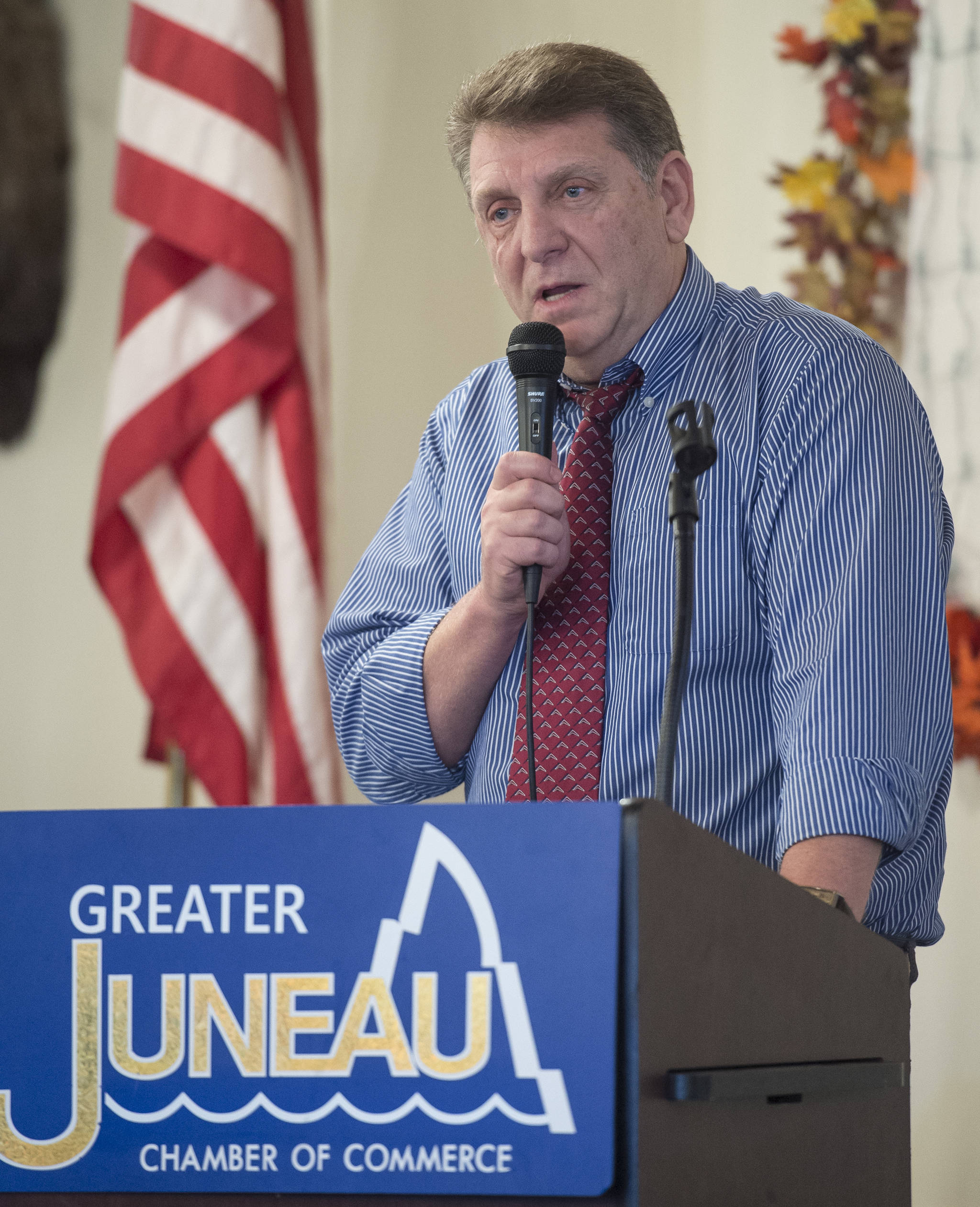Alexander Dolitsky, author and Alaska-Siberia Research Center Director, started his talk to the Chamber of Commerce luncheon by making what he feels is an important clarification.
“Oftentimes, even teachers of history tell their teachers, ‘History repeats itself.’ History does not repeat itself,” Dolitsky said. “History is about the past. It isn’t about the future. It’s not even about present. It cannot repeat itself. …What does repeat itself is patterns of history.”
That, Dolitsky said, is why it’s important to study groups such as the Russian Old Believers. Dolitsky recently published “Old Russia in Modern America: Living Traditions of the Russian Old Believers,” a study of the Orthodox Christians who have maintained basically the same beliefs and rituals for hundreds of years.
Old Believers, as Dolitsky explained to the gathered businesspeople at the luncheon Thursday, left Russia about 350 years ago because they disagreed with revisions made to the Russian Orthodox Church.
They left Russia and searched for homes all over the world, Dolitsky detailed, from China to Japan to South America and in some cases, Alaska. One of the biggest questions Dolitsky sought to answer in his research, which he said spanned 35 years, is how this group has been able to survive so long and preserve its customs and language for so long.
“They have strategy, I call it boundary maintenance,” Dolitsky said. “Certain things they will reject, certain things they will accept.”
He used Old Believers on the Kenai Peninsula as an example. They still dress the same, wear their beards the same, worship the same and speak the same language they spoke in 17th Century Russia, but they’ve accepted some modern concepts. They now use television and radio. They allow outsiders such as Dolitsky and his assistants visit. In past generations, these groups would do everything they could to keep the modern world out of their towns.
Keeping these adaptations selective, Dolitsky said, has helped these people maintain their culture for so long.
Another factor, Dolitsky found in his research, was migration. When it got too difficult for Old Believers to maintain their way of life, they packed up and left. Five families moved to the Kenai Peninsula in 1965, he said, and they’ve been able to live well in that setting. Dolitsky estimated that there are between 2,000 and 3,000 of them in Alaska now, and that they’ve found it to be a suitable location to carry on their lifestyle.
Dolitsky understands this migration, as he left the Soviet Union as a political refugee in 1977 and eventually arrived in the United States a year later. The attendees at the luncheon were curious about his journey and how he was accepted once he arrived. He told stories about how an immigration official gave him $8 when he arrived in the country, the first people he met and more.
His personal experiences added to his experience of talking to Old Believers who have been displaced because of disagreements with their former nations.
Groups such as the Old Believers or Amish that have different national or cultural traditions than the larger population are referred to as ethnic minorities. One of his biggest takeaways, both regarding himself and the Old Believers, was that welcoming these groups and learning from them are important to learning more about the larger society.
“We have to treat ethnic minorities with respect, and we do in our country,” Dolitsky said. “I’ll tell you that.”
• Contact reporter Alex McCarthy at 523-2271 or alex.mccarthy@juneauempire.com.

